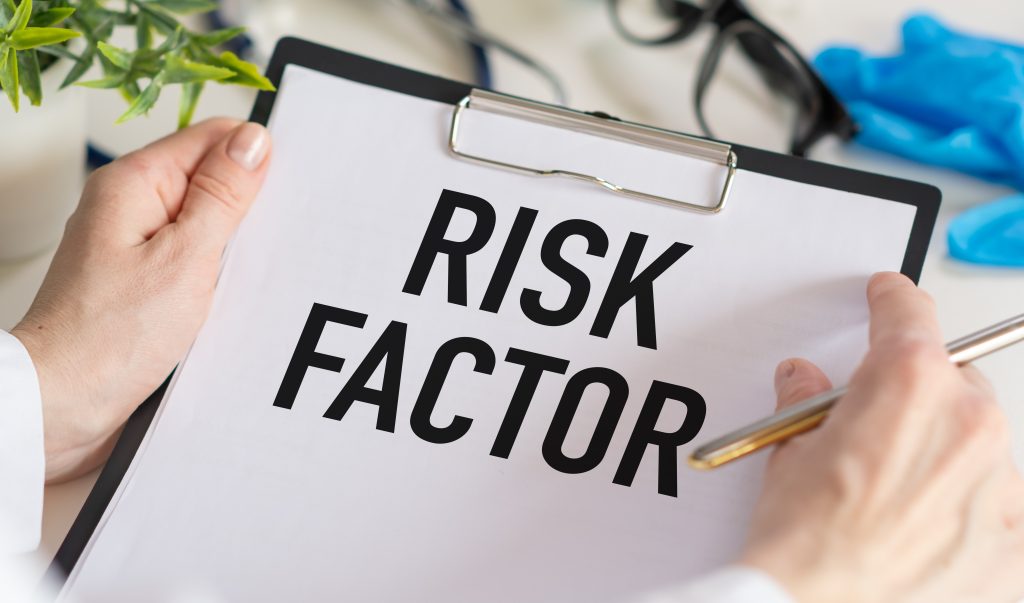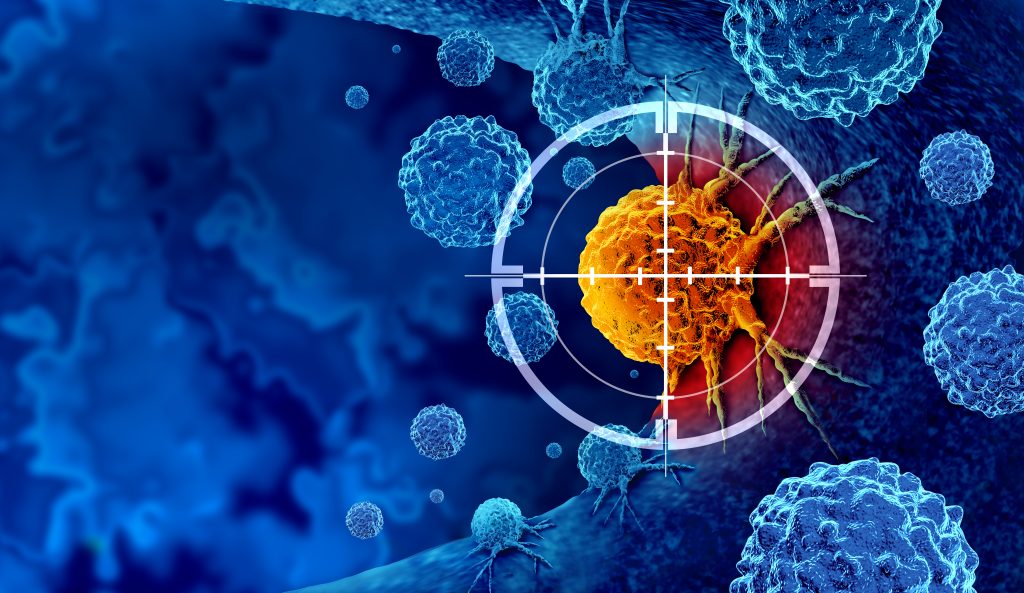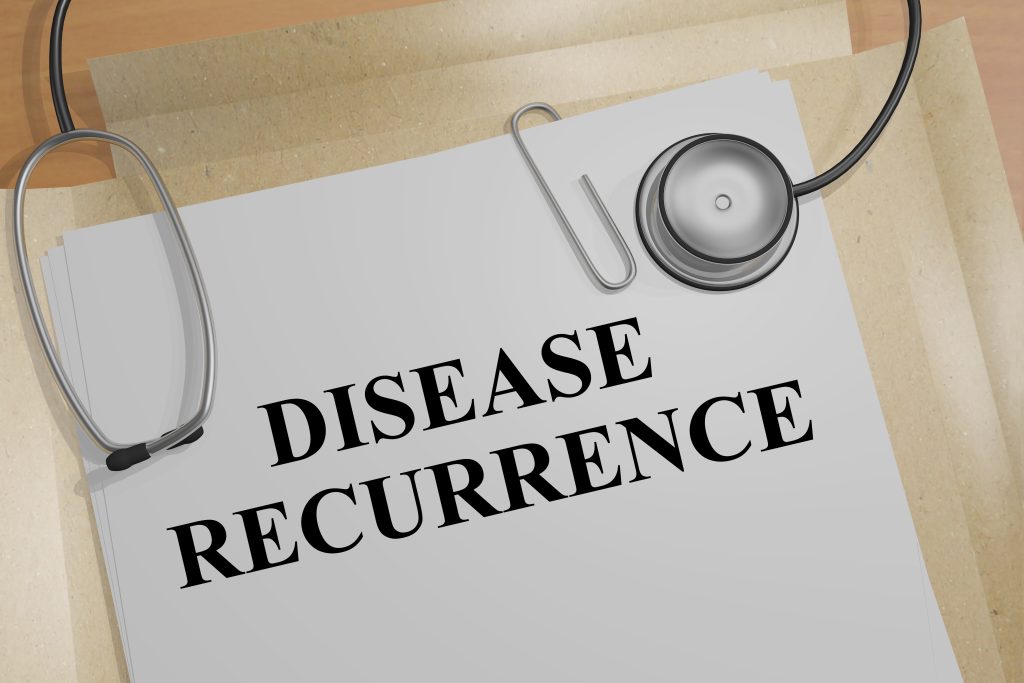COPING WITH A SECONDARY CANCER DIAGNOSIS
When a person who has already had cancer develops a new cancer, it is called second cancer or second primary cancer. It is a completely new and different type of cancer than the first one.

A second cancer is not the same as a cancer recurrence. A recurrence means that the first cancer has come back, in the same area of the body or in a different area.
A second cancer may be a late effect of your first cancer or its treatment, or it may be unrelated to your first cancer. Second cancers are becoming more common since more people are living longer after their first cancer diagnosis than ever before. About 1 in every 6 people diagnosed with cancer has had a different type of cancer in the past.

What are risk factors for a second cancer?
A risk factor is anything that increases a person’s chance of developing cancer. Some people with several risk factors never develop a second cancer, while others with no known risk factors do. Knowing your risks and talking to your health care team may help you make lifestyle and health care choices.
Although risk factors often influence the development of a second cancer, your doctor cannot predict whether you will develop a second cancer. Your risk may be higher if you had a certain type of first cancer and if you have one of these risk factors:
Inherited genes. An inherited gene is passed from parent to child within a family. For example, having one or more family members with cancer or a condition linked to cancer would be a general risk factor for cancer.
Certain cancer treatments. Some types of chemotherapy and radiation therapy raise your risk of a second cancer. The risk is higher if you had treatment as a child, teen, or young adult.
Lifestyle habits. Risk factors include the same things that put people at risk for a first cancer, such as smoking and other tobacco use, being overweight, not getting regular physical activity, drinking too much alcohol, eating an unhealthy diet, and/or too much sun exposure.
Talk with your health care team about your specific risks and what you can do to stay as healthy as possible.
Do I need cancer screenings more often than other people?
The follow-up care you receive after you finish treatment for your first cancer should include screenings to check for cancer recurrence. Your doctor can also tell you if you need to be screened for other types of cancers. Tell your doctor as much as possible about your past cancer treatment and family medical history. If you have a high risk of cancer, you might have screenings more often than other people. You should follow the cancer screening schedule your doctor recommends


What are symptoms of a second cancer?
Symptoms of a second cancer may include:
• Feeling tired
• Having a sore that does not heal normally.
• Having a cough or hoarse voice that does not go away.
• Loss of appetite, difficulty digesting your food, or difficulty swallowing
• A lump, discharge, bleeding, or thickening in a certain spot.
• Feeling like your bones ache
• Headaches and vision changes
If you notice any of these changes, talk with your health care team as soon as possible.
Can second cancer be prevented?
Not always. You cannot control some risk factors, like a cancer treatment you received in the past or risk from inherited genes. But you can do some things to reduce your general cancer risk, such as:
• Exercising regularly
• Eating well
• Maintaining a healthy weight
• Not smoking and avoiding secondhand smoke
• Practicing sun safety
• Limiting alcohol use

And you can talk with a genetic counselor about getting tested for certain gene mutations that are linked to cancer. If tests show that you have a mutation, you might choose a treatment to lower your risk of future cancers if available, such as chemoprevention.
Coping with a second cancer
Fear of getting a second cancer is common for cancer survivors. So is fear of the first cancer coming back. There are ways to help you regain a sense of control when facing this type of uncertainty. A good first step is talking with your doctor, loved ones, and/or a counselor as you cope with fears of a second cancer and with life as a survivor.
You can also join a support group in person or online. Spending time with others who have had similar first-hand experiences can be very helpful.
Staying up to date with your follow-up care appointments is also crucial. Finding and treating a new cancer early are important, just as with the first cancer. Make sure your doctor knows as much as possible about your first cancer, its treatment, and your general health.
If a second cancer is diagnosed, and an earlier cancer treatment likely caused it, you might question or blame yourself. But it is important to remember that a second cancer is never your fault. Your first cancer needed to be treated and cancer treatments are powerful.

If you are diagnosed with a second cancer, it can bring up a lot of memories and strong emotions. But you now know much more about cancer, treatment, hospitals, and health care, and all of this can help you cope with a second cancer. Your previous experience with cancer can help you decide how to approach your treatment and emotional support this time around.

Questions to ask the health care team.
Consider asking your health care team the following questions as part of your general survivorship care:
• Could my cancer or its treatment cause another type of cancer in the future? If so, which type(s) could I be at higher risk for?
• What is my overall survivorship care plan? How will it include monitoring for a new cancer?
• Are there other general cancer screening tests I should receive? How often?
• What can I do at home to maintain or increase my health?
• If I feel anxiety about the possibility of another type of cancer developing, who can help me cope with that?
After a diagnosis of a second cancer:
• How likely is it that my earlier cancer or treatment caused this cancer?
• Could a genetic mutation be the cause?
• Would talking with a genetic counselor or having genetic testing help me?
• Will my previous cancer treatment change the way I am treated for this new cancer?
• Who can I talk with about my concerns and emotions about my second cancer experience?
• What can I do to stay as healthy as possible during and after treatment?

Cancer Recurrence
Why do some cancers come back?
Cancers come back when small numbers of cancer cells can remain in the body after treatment. These cells are too small to find with current tests. Over time, they can multiply and grow enough to cause symptoms or be found by testing.
Where do cancers come back, if they recur?
Where a cancer comes back depends on the type of cancer. It may come back:
• In the same part of the body as the original cancer, called a local recurrence.
• Near the area of the original cancer was located, called a regional recurrence.
• In another part of the body, called a distant recurrence.
• Some types of cancers tend to come back in specific places. Doctors call this a “pattern of recurrence.”
Is it the same cancer if it is somewhere else?
Yes. Cancer that comes back is named for the place where it started. For example, if breast cancer recurs in the liver, it is called metastatic breast cancer. Metastatic means the cancer has spread. It is not called liver cancer, even though it has spread to the liver, because it did not start there.
How is a cancer recurrence diagnosed?
After finishing their original cancer treatment, patients often receive a follow-up care plan, also called a survivorship care plan. This plan includes a schedule for visits to the doctor, physical examinations, and possibly other tests. The goal of follow-up care is to make sure you are healthy and to watch for a recurrence.
Depending on the type of cancer you had, you may need blood tests or imaging scans. Often, a careful examination and conversation will be the focus of follow-up care. Your doctor may tell you to watch for specific signs or symptoms of recurrence.
If your doctor suspects the cancer is coming back, you will likely need other diagnostic tests to learn more. These may include laboratory tests such as blood and urine tests, imaging scans, or a biopsy.

Treatment if your cancer comes back.
If testing shows that your cancer has come back, your doctor will talk with you about your treatment options. This is similar to planning your original cancer treatment. Your doctor will consider the following factors:
• The type of cancer, where it came back, and how much there is
• Your general health
• The original treatment and how well it worked
• Your personal goals for treatment
• Side effects you had with the original treatment
• How long ago you finished treatment
• Your doctor may also suggest a clinical trial.
• When you choose a treatment option, you may want to consider:
• The goals of each treatment, and the benefits you expect from it
• The possible risks and side effects
• How each treatment could affect your quality of life
During treatment, relieving symptoms and side effects is important. This is called palliative care or supportive care. Talk with your health care team about your symptoms, including any new or different symptoms.
Coping when cancer comes back.
If your cancer returns, you may have many different feelings. Shock, disbelief, anger, and fear are all common emotions. So are anxiety and grief. You may even find this diagnosis more upsetting than the first cancer diagnosis.
You may also doubt your original treatment choice or other decisions. However, it is important to remember that you and your health care team made the best decisions you could at the time. You used the information that was available to you.
You might be worried about coping with another round of tests and treatments. But many people find they are better prepared because they have been through treatment before. For example, you have:
• Knowledge about cancer, which helps lessen fear and anxiety about the unknown
• Relationships with doctors, nurses, and other health care team members
• An understanding of health care, health insurance, and some medical terms
• Knowledge of cancer treatments and side effects, including ways to manage side effects.
• Support, such as family and friends, support groups, and health care team members trained to support you.
• Experience managing stress with exercise, meditation, spending time with friends, and other activities.


Questions to ask your health care team.
If your cancer comes back, you may want to ask your doctor or health care team some of these questions.
• Why did my cancer come back?
• What does it mean for my future health?
• Do I need more tests to learn about cancer recurrence?
• Did the stage of my disease change?
• Can cancer be treated? What treatment do you recommend?
• What clinical trials are open to me?
• Can we stop or slow down cancer? Will cancer shorten my life?
• If I do not want treatment for cancer, what are my options to focus on supporting my quality of life?
• If I’m very worried or anxious about this diagnosis, who can I talk with?
• I would like to talk to other people who had this type of cancer come back. Can you help me connect with them?
This may also be a good time to consider joining an in-person support group or online community. These are places where you can talk about your feelings and experiences with others in the same situation.
